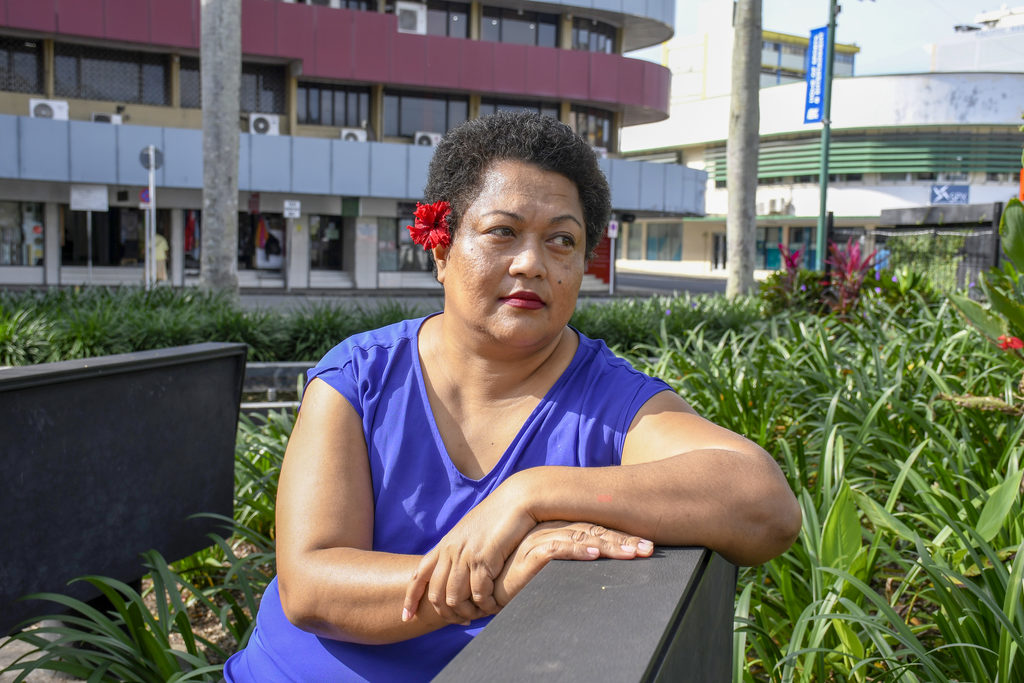She had it all – a marriage, children, and a career all built on commitment, hard work and sacrifice.
But like a series of bad dreams, Salote Malani lost it all, and by the time she was 38, she found herself alone, helpless and questioning the blows life had dealt her.
As if to add to her woes, she also noticed with trepidation the changes happening to her – one minute she was absolutely fine, and the next, she was an emotional wreck.
Then there was the intense weariness she couldn’t explain and a memory that seemed to be betraying her more with every passing day.
Fading in silence
It was only when she felt herself fading away that Malani realised she wasn’t done with life – not yet.
“I started digging deeper to find the cause of my ailment,” she said, after general medical checks showed nothing unusual.
That marked the beginning of a journey of self-discovery.
“I was a principal in a prestigious school and my leadership role was very challenging as it was. When I started going through these changes my work was greatly affected.”
Malani says she started experiencing severe headaches and struggled to make crucial decisions.
“My decision-making abilities were affected, and my train of thoughts was distracted very easily. I could see that I was not performing to my usual level of efficiency.
“At home it wasn’t any better. My husband at the time didn’t know what was wrong, and everyone thought I was losing it.”
She said she was always exhausted and had heart palpitations that left her anxious.
“I had to go on leave and soon I exhausted my leave quota and had to resign to prioritise my health as I had no other option. I visited a counsellor and medical experts while I researched my symptoms.”
Journey to discovery
Online, she read about hormones and trauma, and the changes women’s experienced during perimenopause and menopause. The more she read, the more she saw herself in the lived experiences of women sharing their stories online and found some answers.
“Menopause symptoms differ among women but the impact it leaves is almost the same – your body is preparing for and adjusting to change. We usually treat this as normal aches and pain but it is more than that.”
Malani says women are often misunderstood and even labelled ‘cavuka’ (mentally unwell) by those around them.
It took her three years to regain control of her life.
“I changed my diet and went back to the basics of health and wellness – sleep well, eat well and exercise.” Five years later, she says she feels “on top of the world”.
“In our society menstruation is a taboo subject so imagine the lack of knowledge on menopause. We can make a difference by being open, wiling to share and listening to our children.
“If I had known that menopause was a temporary phase and that with proper care and help from experts I could have come through it, I would have hung on to my family and career instead of letting go.”
Spreading the word
Although she had no way of learning about menopause sooner because no one had warned or informed her about it, Malani says her experience has prompted her to come back better.
“I now advocate for menopause to raise awareness about it and my friends and family now reach out to me when they’re going through menopausal symptoms and other life issues.
“I regret not knowing about menopause earlier when I was going through the symptoms but I’m grateful because the challenges have motivated me to be an agent of change where I can. I’m grateful that I have become a stronger person mentally and can persevere in difficult circumstances.”
Menopause, she said, was also a contributing cause of marital problems and families falling apart.
“As women, we don’t know about this phase in our life so to expect the male community to understand it is asking too much. This topic needs to be discussed more openly so that women are aware of this and know how to manage it.
“We must raise awareness of it at all levels so our women, men and children know about it. There are many issues on men and women’s health that need to be highlighted but so many taboos that restrict us to the old ways of thinking.”
Vital support systems
Malani acknowledges the support of friends in helping her cope.
“We are now more attentive of each other. If one of us needs a gentle nudge to regroup or take time out, we use code words designed to remind us that we are going through perimenopause and to take it easy.
“This way we not only look after each other but we help each other function to the best we can and help one another navigate through this challenging period of life.”
Malani says her mother and aunties would have also gone through these periods without knowing what they were experiencing.
“This stage of life is very uncertain, and many harsh decisions are sometimes made by the female members of many families. Changes in women’s development should be given the same importance nationally as topics like climate change or economic development.
“I urge the public and private sector to work on polices related to this so that women do not resign or are ill treated for their erratic behaviour but are instead given the support and rest they need.”
Reflecting on life, Malani chooses to live with gratitude at having redefined her life, even after losing everything she once had.
Today, she finds fulfilment in life by volunteering with the First Nations Foundation, Fiji Council of Social Services, Fiji Youth Women Federation Association, Women in Agriculture and Hearts with Vision Cooperative.



